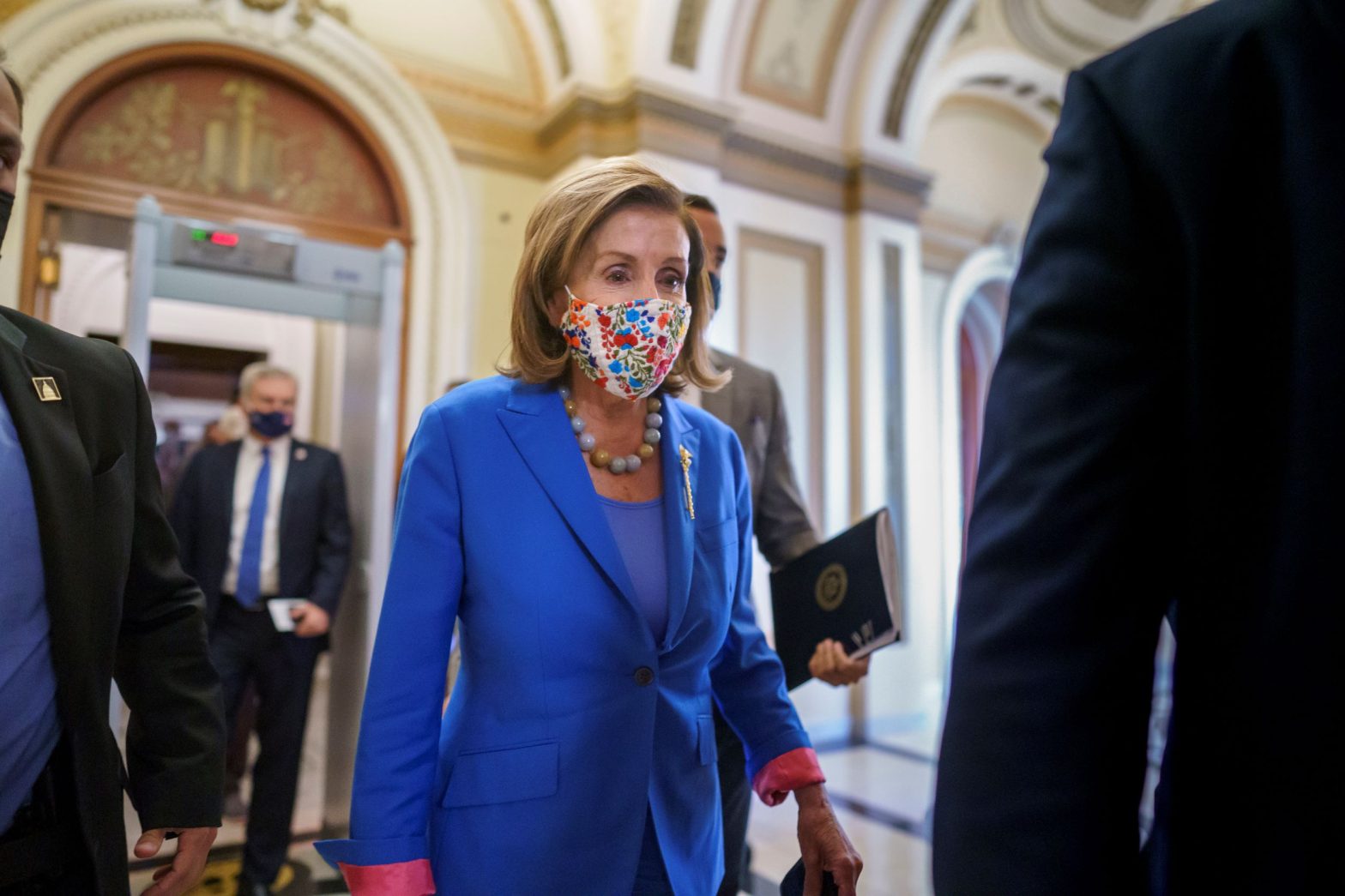Progressive Resistance Delays Vote on Infrastructure Bill
Manchin Topline Stymies Bid for Reconciliation Deal

WASHINGTON — You can almost hear it all across Capitol Hill: “It’s likely to be a long, long day.”
On Thursday night, finding themselves short of votes and with the continued resistance of the progressive wing of the party on their hands, Democratic House leaders pulled a vote on the $1.5 trillion bipartisan infrastructure bill, planning to take another stab at it Friday.
The delay marks the second time in a week that House Speaker Nancy Pelosi and the Democratic leadership have been forced to postpone the critical vote. In order to appease House moderates, Pelosi last summer promised to hold a vote on infrastructure on Monday, Sept. 27.
However, she was forced to delay that planned vote as the House continued negotiations with the White House and Senate over the $3.5 trillion budget reconciliation package.
Progressives say they won’t support the infrastructure bill without a deal on the reconciliation bill. Without their support, given the slim margin in the House, the bill would fail.
Pelosi agreed to send lawmakers home without taking a vote shortly after 10 p.m. Thursday, but in a bid to at least technically keep her word to moderates, she used a procedural maneuver to avoid starting a new legislative session Friday morning.
That means when the House reconvened this morning, it was, in a technical sense at least, still Thursday.
The mood of the Capitol is anything but sanguine.
The first thing this morning, Sen. Mitt Romney, R-Utah, one of the architects of the bipartisan infrastructure bill, released a statement in which he said, “It is unacceptable that a major piece of bipartisan legislation, which is vital to our economy and necessary to keep important transportation programs going, is being held hostage by the most extreme House Democrats for a completely unrelated and still unwritten piece of legislation.
“What a profound disappointment, and how unfortunate to put politics over what is good for our country,” Romney said.
The $1 trillion infrastructure bill was passed by the Senate with overwhelming bipartisan support in August. The final vote was 69-30, with even Senate Minority Leader Mitch McConnell voting for it.
The bill would provide $550 billion in new funding to rebuild the nation’s deteriorating roads and bridges, while also bolstering the United States’ resilience in the face of climate change and extending broadband into unserved communities.

All told, it would provide $110 billion for roads, bridges and other projects; about $65 billion to expand the reach of broadband; $25 billion for airports, and $66 billion for Amtrak, the largest infusion of cash the passenger rail service has had since 1971, according to the White House.
The bill also includes measures that should appeal to progressives, like the money it sets aside to build out the grid needed to support an expected boom in electric vehicles in the next decade.
But progressives are refusing to vote on infrastructure until they are assured they will get what they want in the reconciliation bill, which is loaded with climate change and social justice-related provisions.
The problem is Democrats don’t have the votes to pass the reconciliation bill in the Senate, thanks to the opposition of Sens. Joe Manchin, D-W.Va. and Kyrsten Sinema, D-Ariz.
On Thursday Politico reported that Manchin had told Schumer as long ago as July that he couldn’t support the bill unless certain key concessions were met.
These included, among other things, seeing the measure cut to $1.5 trillion; means testing imposed on as many new social programs as possible, a surge of support for the treatment of opioid addiction in his state; and assurances that nothing in the bill would eliminate the production and burning of fossil fuels.
But Manchin indicated there are things he would accept, such as rolling back some of the Trump-era tax cuts of 2017, and raising the corporate tax rate to 25% from 21%.
Manchin also suggested he would be willing to vote to set the top individual income tax rate at 39.6%, up from 37%. He’s also said he would increase the capital gains tax to 28%.
As for Sinema, she, like Manchin, has long said the $3.5 trillion price tag is just too high. But as of Thursday, many were still saying they did not know what else Sinema wants in order for her to support some form of the package.
SInema herself rejected that characterization Thursday afternoon.
In a Twitter post, she said President Biden and Leader Schumer both know her position, and that she expressed her concerns to them in detail in August. She also insisted she would not negotiate in public, meaning her Tweet is likely her last word on the matter until a deal is reached.
By late afternoon, policy aides to both Pelosi and Schumer were said to be meeting with top White House advisors Susan Rice and Brian Deese to try to hash out a compromise that would satisfy both the senators and not alienate the House progressives.
In a statement, White House Press Secretary Jen Psaki said President Biden is “grateful to Speaker Pelosi and Leader Schumer for their extraordinary leadership, and to members from across the Democratic Caucus who have worked so hard the past few days to try to reach an agreement on how to proceed on the Infrastructure Bill and the Build Back Better plan.
“A great deal of progress has been made this week, and we are closer to an agreement than ever. But we are not there yet, and so, we will need some additional time to finish the work, starting tomorrow morning first thing,” she continued.
“While Democrats do have some differences, we share common goals of creating good union jobs, building a clean energy future, cutting taxes for working families and small businesses, helping to give those families breathing room on basic expenses—and doing it without adding to the deficit, by making those at the top pay their fair share,” she said.























